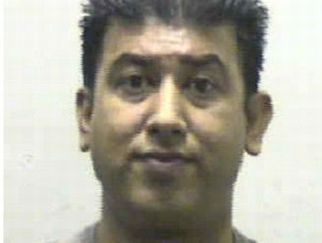 HM Revenue and Customs needs to “sharpen up” its act when it comes to the way it handles calls, a parliament committee has said.
HM Revenue and Customs needs to “sharpen up” its act when it comes to the way it handles calls, a parliament committee has said.
In its report, the Committee of Public Accounts (PAC) said the organisation’s treatment of call handling and responses to letters was “abysmal” and “disgraceful”.
It pointed out that in 2011-12, 20 million phone calls were not answered racking up a total of £136 million wasted by callers who were waiting to speak to an adviser.
Against its target of responding to 80 percent of letters within 15 days, the department managed to reply to just 66 percent, PAC said, adding this was an “abysmal record.”
The Rt Hon Margaret Hodge MP, Chair of the Committee of Public Accounts, said: “HMRC’s ‘customers’ have no choice over whether or not they deal with the department. It is therefore disgraceful to subject them to unacceptable levels of service when they try to contact the department by phone or letter.”
However, she pointed out the organisation was aiming to change its attitude with officials “beginning to realise that “good customer service lies at the heart of any strategy.”
She added that it was also good news for those trying to phone the department as they would no longer be forced to use the more expensive 0845 numbers.
Other planned changes include the resolution of more queries first time and a call-back service where this is not possible.
Last week the department announced it would cut a third of its customer-facing staff as well as closing all of its 281 enquiry centres in 2014. It said at the time, that instead of visiting these customers had to contact the phone line or go online to get their tax query answered.
Advisers may then decide that the issue should be discussed face-to-face at the caller’s home or elsewhere. The HMRC said that this could shave £13 million a year off its bills.
However, PAC pointed out that the HMRC now faced more calls but had fewer staff.
It said that as a result of these changes the HMRC’s new target of answering 80 percent of calls within five minutes was “woefully inadequate and unambitious.”
Hodge said the department should instead set a more demanding target in the short term and a long-term target that is much closer to the industry standard of answering 80 percent of calls within 20 seconds.
“Just how the department is going to improve standards of customer service, given the prospect of its having fewer staff and receiving a higher volume of calls, is open to question. HMRC plans to cut the number of customer-facing staff by a third by 2015. At the same time, the stresses associated with introducing the Real Time Information System, Universal Credit and changes to child benefit are likely to drive up the number of phone calls to the department,” Hodge pointed out.
“Since our hearing it has also been announced that HMRC is to close all of its 281 enquiry centres which give face-to-face advice to customers. This will undoubtedly put even more pressure on phonelines.
HMRC spent approximately £900 million on customer service in 2011-12, around a quarter of its £3.7 billion total expenditure. It received 79 million phone calls and 25 million items of post in the year.
People contact HMRC because they want to get their tax right and HMRC is obliged to make sure they get a good service.
However, in recent years the standard of HMRC’s customer service has been described by PAC as “unacceptable.”
 Aria Technology is headed for the Court of Appeal in a third go at overturning a £750,000 VAT fraud ruling.
Aria Technology is headed for the Court of Appeal in a third go at overturning a £750,000 VAT fraud ruling.








